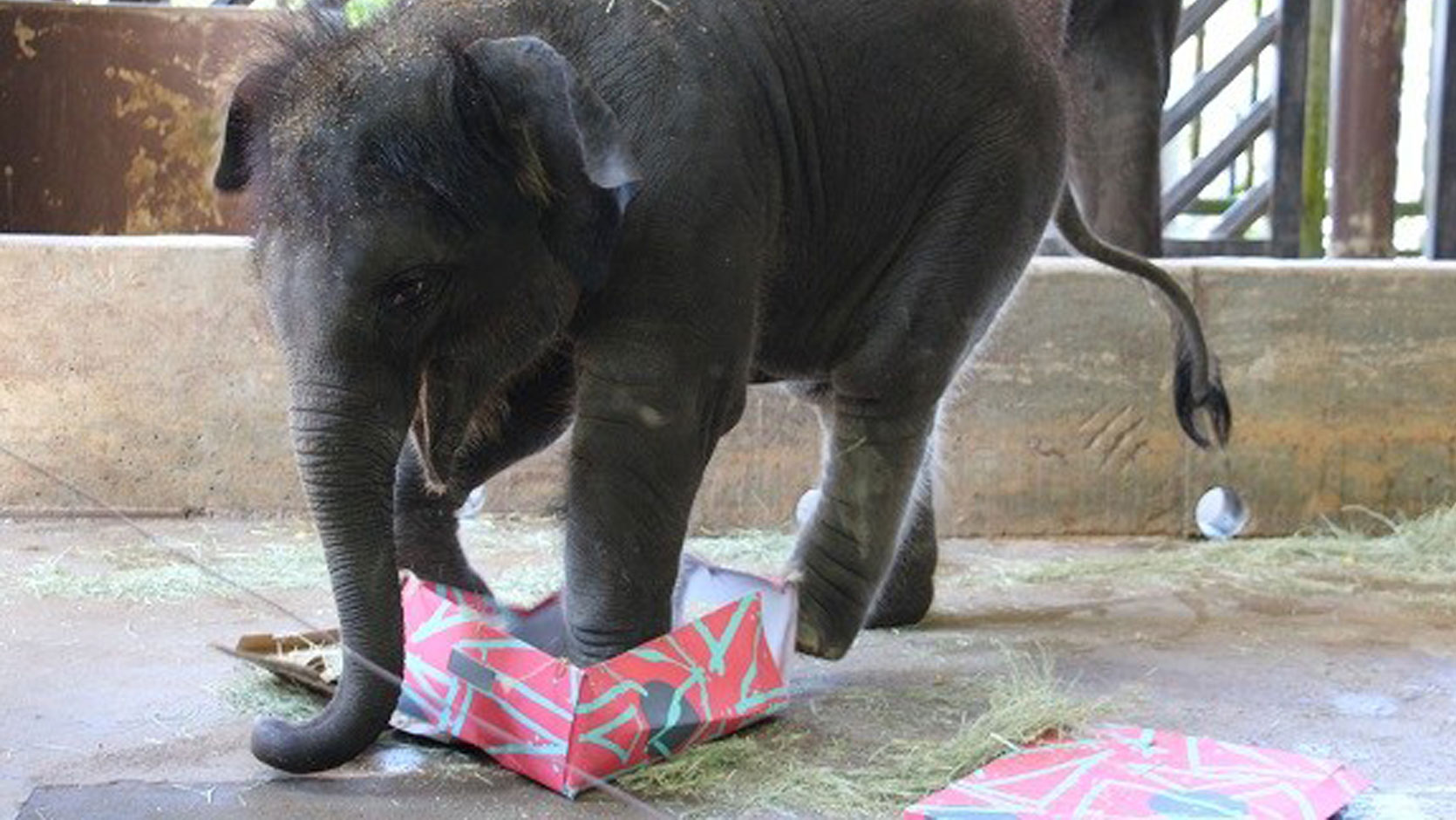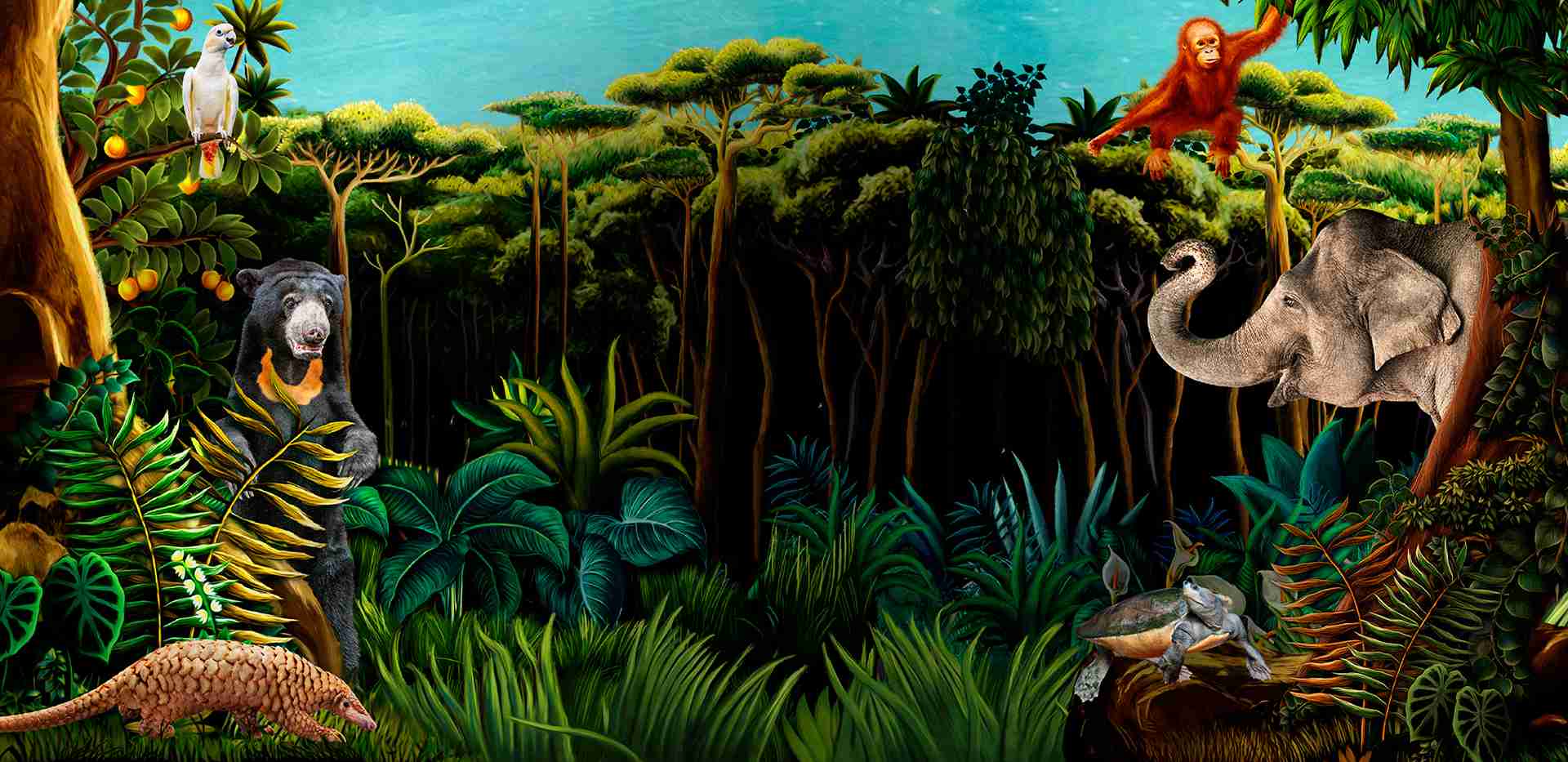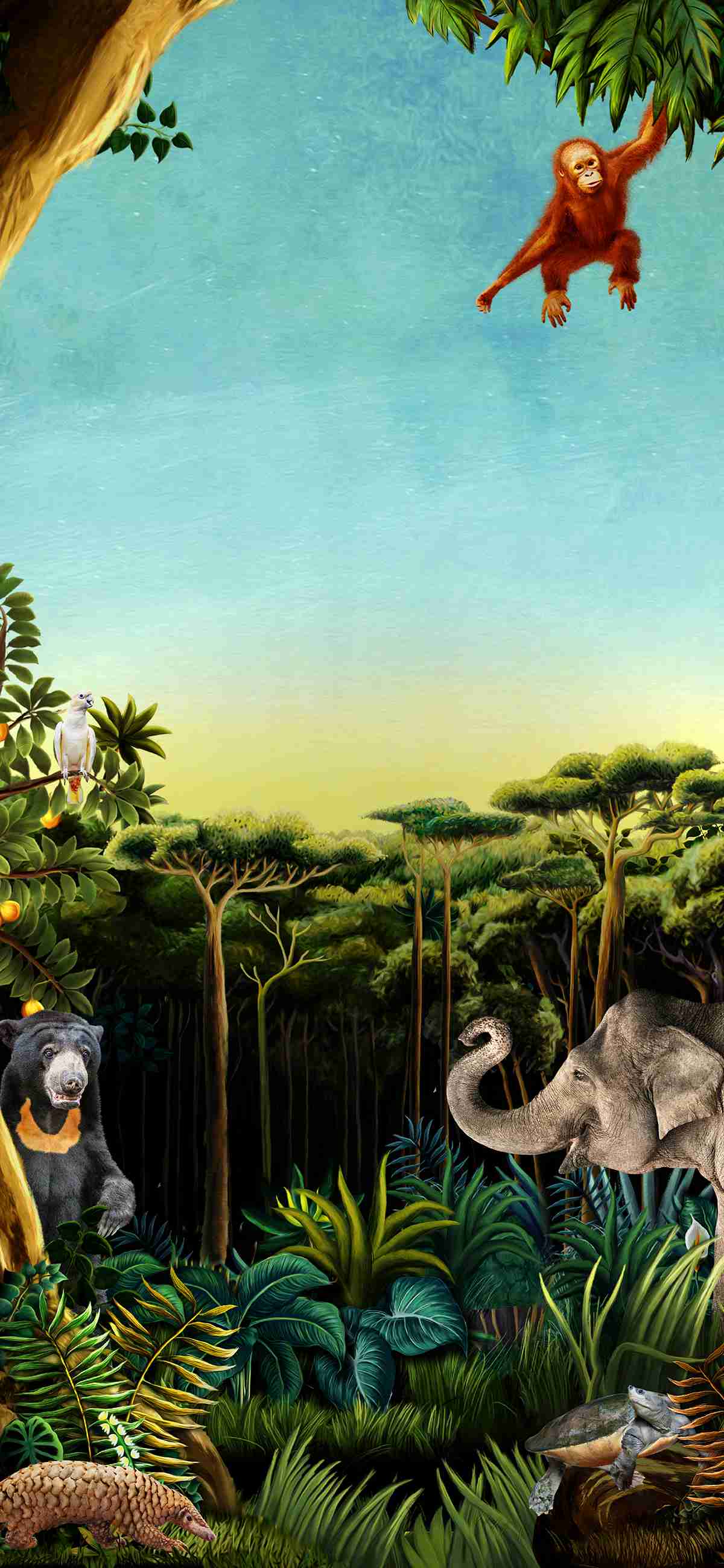Night Safari's Neha celebrates first birthday with mammoth milestone
SINGAPORE, 11 May 2017 - Night Safari’s baby elephant Neha has had a tremendously busy year, and her keepers can proudly boast that the little pachyderm, who turns one year old tomorrow, has mastered the art of responding to about 10 instructions as part of her ongoing conditioning sessions which began in November last year.
There is a practical reason for starting elephant lessons early. Neha has reached the at-risk age of contracting the Elephant Endotheliotropic Herpesvirus (EEHV), and her team of caregivers is taking every precaution to ensure they are ready to combat the disease should it strike.
Play sessions condition Neha to work with care team in case deadly elephant herpes virus strikes.

Night Safari’s baby elephant Neha readily lifts her leg in response to senior keeper Rahimi Rashid’s request. As a reward, she gets an enjoyable brush down on her foot. Being able to work with a cooperative calf from a young age allows her caregivers to respond swiftly should the elephant herpes virus strike.
Photo credit: Wildlife Reserves Singapore

What’s a birthday without presents? After a session of hard work, Neha eagerly explores her boxed treats with gusto! The cardboard cartons contain a hay and fruit salad of chopped bananas and mangoes, which Night Safari’s littlest elephant delightfully scoffed.
Photo credit: Wildlife Reserves Singapore
EEHV can result in severe haemorrhagic disease in elephants, and is the leading cause of death for juvenile Asian elephants under human care. Calves of between 1-8 years of age are at the highest risk of contracting this often-fatal disease. Currently there is no vaccination available, and medication only serves to suppress the growth of the virus. Death frequently occurs within 1-2 days of the first visible signs, and early diagnosis and treatment are critical to survival.
Neha’s older brother Nila Utama succumbed to EEHV in 2013, when he was two years old. He had shown signs of contracting the disease just two days before he passed.
Conditioning Neha from an early age through protected contact makes it easier for her vets and keepers to monitor her closely, and ensure early diagnosis, which is crucial in the management of this disease. Protected contact means that Neha’s conditioning sessions take place with barriers in between her and her keepers. This allows for higher quality care and welfare while ensuring a greater degree of safety for the humans working with her.
Neha’s daily conditioning sessions are designed as play dates with her keepers, in which she can choose whether to participate. Aside from responding to instructions such as lifting her leg and opening her mouth, Neha already allows her temperature and weight to be taken daily. She is also learning to be comfortable with vets drawing blood from her ear, and to accepting oral and rectal administration of medication. These processes will allow for regular monitoring of her health, and ensure that the team can act swiftly should Neha display any signs of the disease.
Night Safari is committed to providing the required resources to manage this disease risk, and has set aside funding for routine testing and treatment procedures on Neha.
Neha tugged at heartstrings when she bounded into the cyber limelight at a mere 19 days old last May. Currently weighing in at 527kg, she has more than tripled her birth weight of 149kg, and continues to be doted on by her elephantine mum and aunties, and a bevy of human caregivers.
Neha is the offspring of Chawang and Sri Nandong, and is adopted by JTB Pte Ltd. She is the youngest of six Asian elephants—two males and four females—which call Night Safari home.
Asian elephants are listed as endangered on the IUCN* Red List of Threatened Species, more so than their African counterparts. Threats include habitat loss and human-elephant conflicts. The native homes of the Asian elephants are often being logged and cleared for urban and agricultural development.
There are only an estimated 40,000 to 50,000 Asian elephants left in the wild today. To support the conservation of this majestic species, WRS plays an active role on the steering committee of the Asian Captive Elephant Working Group, and was instrumental in setting up the Asian Elephant Endotheliotropic Herpes Virus Working Group. In addition, WRS has funded field projects for Management and Ecology of Malaysian Elephants (MEME) in Malaysia and ElefantAsia in Laos, and currently supports the work of the Elephant Response Unit in Way Kambas National Park in Sumatra.
*IUCN: International Union for the Conservation of Nature

